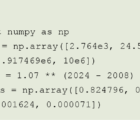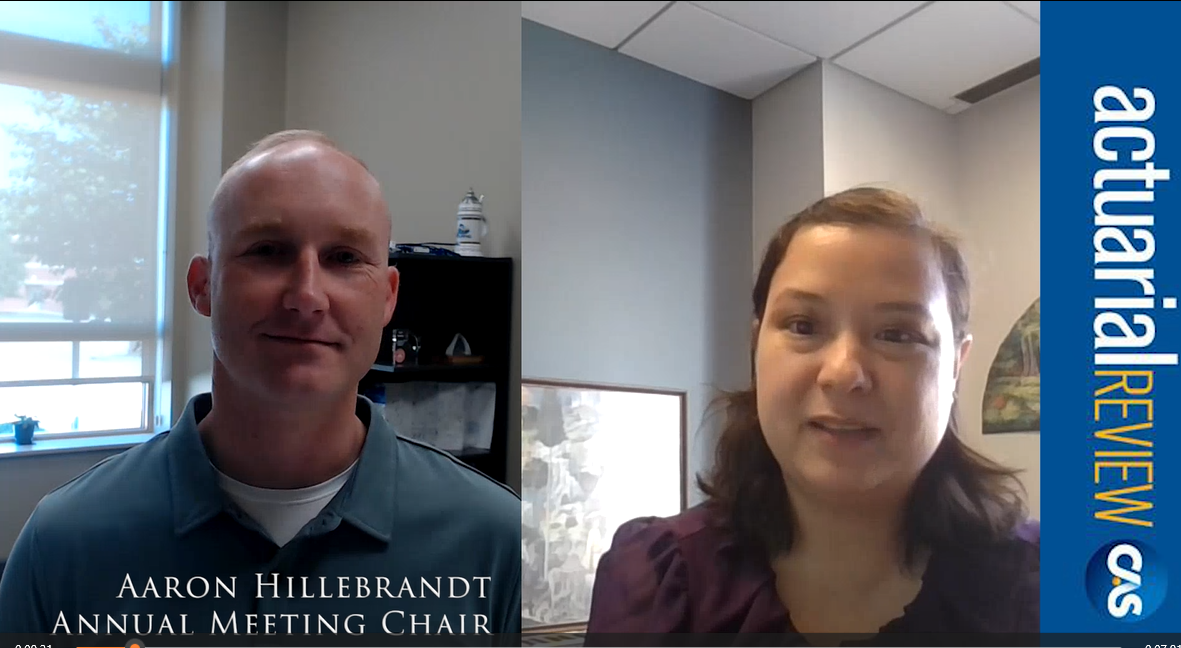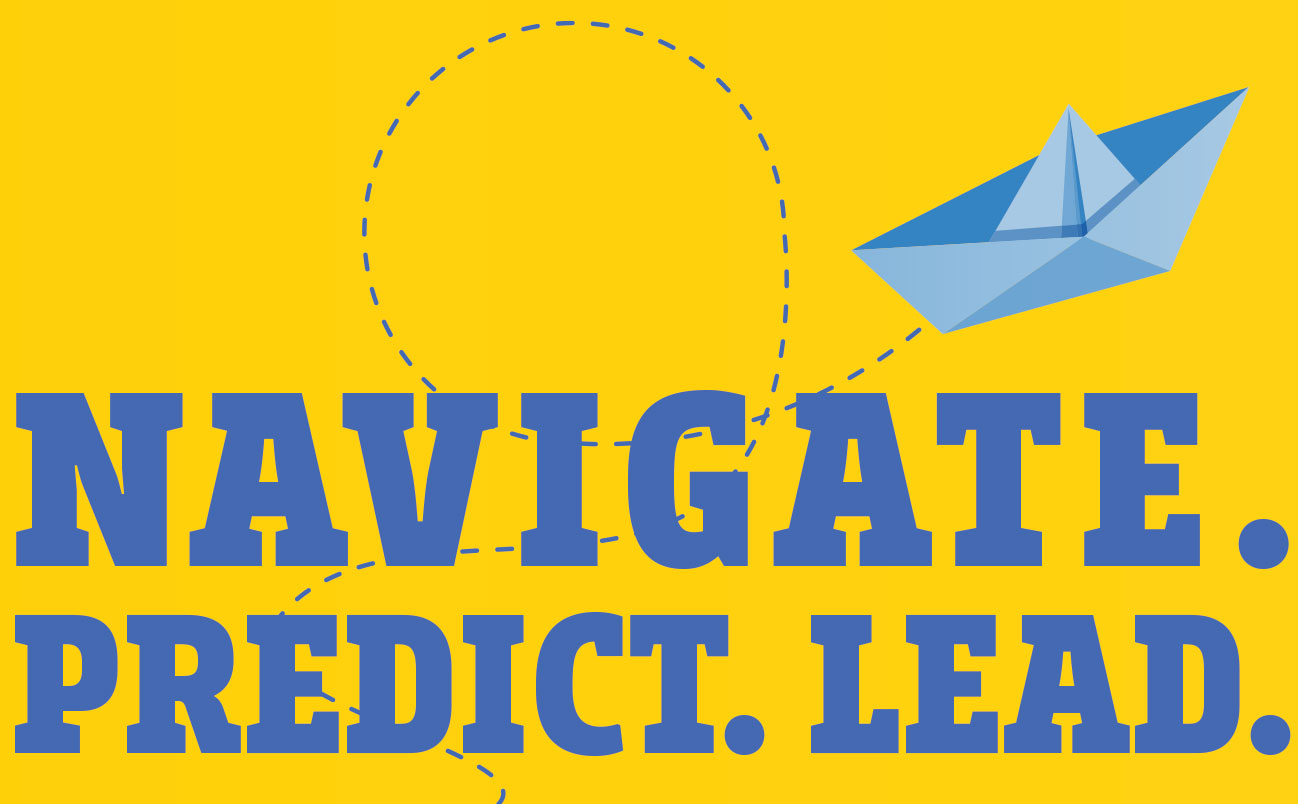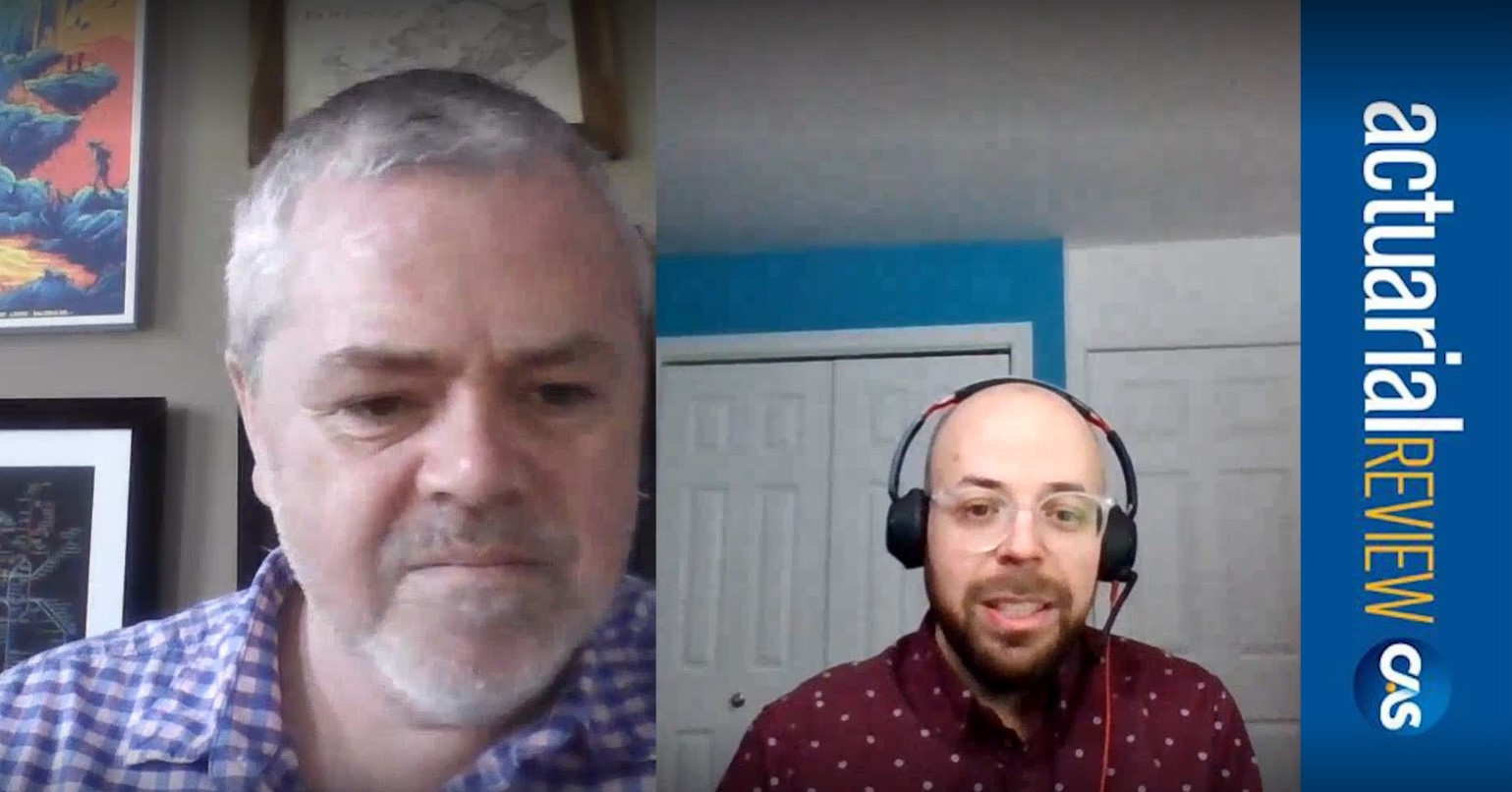 At a recent presentation to the board of another actuarial organization, I reported on the CAS’s impressive growth over the past few years. I was asked how we plan to maintain our culture as our membership continues on a very healthy growth path. I was also asked if we would expect that there would be a time when the engagement among CAS members, which is so enviable, will become lost in a large professional society as we advance. It is a difficult scenario to ponder, but I am optimistic, based on a couple of promising observations.
At a recent presentation to the board of another actuarial organization, I reported on the CAS’s impressive growth over the past few years. I was asked how we plan to maintain our culture as our membership continues on a very healthy growth path. I was also asked if we would expect that there would be a time when the engagement among CAS members, which is so enviable, will become lost in a large professional society as we advance. It is a difficult scenario to ponder, but I am optimistic, based on a couple of promising observations.
I was very encouraged when I first learned of how our members reacted to solicitations for the CAS to merge with another actuarial organization and to personal entreaties to the members to join another actuarial organization. The commitment and intense loyalty to our organization and its culture were powerful.
My second observation is of the profound dedication of those members actively engaged at CAS meetings and in CAS volunteer opportunities, as well as the sheer longevity and depth of CAS volunteer involvement. This dedication is truly inspiring.
The CAS volunteer culture is not only highly valued by our members and stakeholders, but it’s also recognized within the profession and among industry leaders. Among the international actuarial community, CAS leaders are often sought after for connections and formal relationships. Also, among other professionals within the P&C industry, such as underwriters and claim managers, the reputation of the CAS and our members is very strong. These observations are both consistent and durable, mostly as a result of the excellent experience that those outside our profession have had in working with CAS members. This recognition is also a key to the strength of our culture.
Masters and Experts beyond Actuarial Science
I continue to be amazed at the depth and diversity of the professional and academic achievements of CAS members. Masters and doctorate degrees, and designations such as CERA, CFA, CPCU, ARM, ARe and CPA abound among CAS members. These abilities and educational achievements are testaments to the professional excellence of our CAS members wherever they choose to apply their knowledge and expertise. Furthermore, when meeting with the leaders of other actuarial organizations and industry groups as a CAS leader, I am struck by their high level of interest in developing a collaborative relationship with the CAS in significant areas of mutual interest and benefit.
We also have many members who have used their CAS actuarial education and experience as a springboard for other pursuits and careers. Unlike many professions where the predominant goal is to have a career as a practitioner, CAS members frequently expand their horizons well beyond the ranks of practicing actuaries to pursue careers as insurance executives, regulators, financial executives, strategy consultants, journalists, data scientists, product managers and entrepreneurs.
These achievements of so many CAS members are certainly noteworthy and provide a source of pride about the CAS. More importantly, the CAS culture that emerges from this sense of community is definitely noticed by outside observers. In fact, our three appointed CAS board members are particularly enthusiastic about promoting opportunities for the CAS to become more accessible and to be better connected to other experts in the insurance industry.
Adaptation, Assimilation and Evolution
Once of the differentiating attributes of CAS professional education has been to continuously improve our educational programs, our qualifying exams and our skillset as actuaries. The recent report on travel time to FCAS has indicated that we can achieve these improvements without lengthening the time it takes for actuaries to become fully qualified. However, travel time is only one dimension of professional qualification. We need to better understand and, if possible, rectify the extraordinary time period that it takes a significant number of CAS members to complete the FCAS requirements. Moreover, we should find ways to help ACAS members who desire to reach FCAS, but despite numerous exam attempts, are challenged to do so. In many cases, long-term ACAS members are quite successful in their careers.
CAS members frequently expand their horizons well beyond the ranks of practicing actuaries to pursue careers as insurance executives, regulators, financial executives, strategy consultants, journalists, data scientists, product managers and entrepreneurs.
The description of the actuary as an insurance mathematician or statistician who has practical business acumen, like an MBA, seems to fall far short of how many of us see ourselves and our profession. I have seen several of my CAS colleagues adapt their actuarial skills to many challenges and opportunities that they face in business. Their skills in finding practical and insightful solutions generally surpass those of mathematicians, statisticians and MBAs. They have developed the keen ability to adapt their education in mathematics, statistics and business to apply complex insurance problems. They also become masters at assimilating knowledge and understanding concepts from law, behavioral psychology, economics, finance, accounting, marketing, computer science, enterprise risk management and data science. Some of my colleagues have also been able to assimilate knowledge from such diverse fields as medical science, environmental science, meteorology, seismology, geology and agricultural economics in order to analyze the potential costs associated with specific risk issues. CAS education, along with the practical experience of our CAS colleagues, appears to encourage the development of these adaptive and assimilation skills and to foster a community of technical problem solvers who have evolved into quick learners who can connect dots quite effectively across highly technical fields.
Communication — Our Nemesis, Our Challenge
The collective talents of CAS members are quite impressive. However, despite having such talents, it can be quite frustrating when some of those in general management and executive positions view actuaries as lacking in the ability to communicate the most useful or relevant insights from their work. Perhaps some actuaries suffer from too much of an inward focus and consequently are perceived as missing the big picture. It has also long been a perception that actuaries are not good communicators and that communication skills seem to persistently evade us and are difficult to assimilate into our culture. While there certainly are actuaries with excellent communication skills who have excellent career paths, the unfair perception of actuaries remains.
Good communicators are generally seen as being quite confident. However, such confidence can sometimes be mistaken for competence, particularly when the actuarial evidence is not so clear. Certainly, our confidence is perceived based on our ability to communicate our advice and conclusions both effectively and persuasively. While our professional credentials do create a level of trust, poor communication skills can erode the recognition of that trust. Being able to tell our story, particularly in a way that will be understood by those with different backgrounds and talents, is a critical talent that actuarial leaders around the world have recognized as an important skill for the long-term continued success of our profession.
The need and value for actuaries to have good communication skills is recognized globally. We are faced, however, with the emergence of a digitally connected global society, something particularly appealing to actuaries attracted to the wealth of digital data to analyze. Consequently, the challenge for the profession is to ensure that actuaries acquire good communication skills in a world where short and brief electronic communication reigns.
A Very Bright Future Ahead
As the CAS continues to grow in numbers, in areas of specialization and geographically, we need to continue to encourage that passion for maintaining an intense sense of community. I believe that we can do it by continuing to energize our plethora of volunteer opportunities, in-person meetings and seminars, regional and special interest events, webcasts, innovation challenges, leadership development, continuing education offerings and social media involvements. I trust we will accomplish our mission as a professional institution, particularly as a collaborator with other actuarial associations and other professional organizations. It is important that all of us to stay connected to our CAS colleagues and stay engaged in being the best we can be. I certainly plan to continue to be an active CAS volunteer where my talents are needed.
In my previous President’s Message in AR, I wrote about charting a new course for the CAS and our profession. Details about that new course will be announced soon. Your patience in waiting to learn about these plans is appreciated. I believe that you will be impressed and enthusiastic about these plans.













